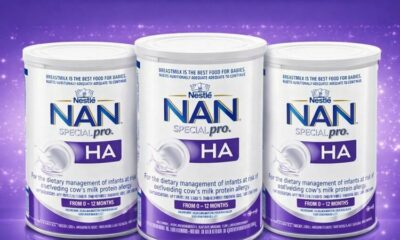News
‘Halephirimi’ Banned After Soweto Tragedy: SA Cracks Down on Deadly Pesticide

Community outrage forces state action as government bans Terbufos and pledges tighter food safety laws
When children in Soweto died after eating poisoned snacks in 2023, South Africa was horrified. The tragedy, which unfolded in one of Johannesburg’s most vibrant and densely populated townships, sparked grief, outrage and deep unease about food safety , especially in the informal trade sector. Now, months later, government has finally responded with a decisive move: a national ban on the pesticide Terbufos, commonly known by its chilling nickname in township slang halephirimi “bringer of darkness”.
A Tragedy That Could No Longer Be Ignored
The public first learned of the tragedy through viral community posts and frantic videos on WhatsApp and X (formerly Twitter), showing panicked parents and scenes outside clinics in Soweto. Local residents claimed children had eaten snacks bought from a spaza shop a familiar and vital part of township life and later fell violently ill.
An Inter-Ministerial Committee investigation revealed what many feared: the likely presence of Terbufos, a highly toxic organophosphate pesticide, in the food consumed. While the exact source was never definitively confirmed, government officials now say food contamination with Terbufos from a spaza shop remains the most plausible explanation.
“The deaths of children, possibly from food laced with a pesticide banned in much of the region, should never have happened,” said Minister in the Presidency Khumbudzo Ntshavheni during a media briefing in Cape Town.
Halephirimi: Cheap, Deadly, and Ubiquitous
Terbufos has long been used by South African farmers to kill pests. But its highly toxic nature particularly when misused or repackaged for illegal sale has made it a deadly presence in informal communities. The slang term halephirimi says it all: a substance so feared, it’s associated with instant darkness, death, and disappearance.
Experts warn that its sale in unregulated quantities, often under the counter in townships, is rampant. Small-scale traders and consumers may not even know the substance is in the products they’re buying or consuming.
South Africa’s continued legal use of Terbufos until now has stood in stark contrast to other Southern African countries like Zambia, Namibia and Angola, which have already banned it.
Spaza Shops Under Scrutiny
President Cyril Ramaphosa responded to the fallout not just by banning the chemical, but by ordering all spaza shops to register with government, a controversial but potentially vital move. The aim is to regulate informal food sellers and create accountability in a space that’s long operated in the shadows of the formal economy.
But while this decision may improve oversight, some township entrepreneurs fear it will create barriers to survival for legitimate, small traders already struggling under inflation and tight margins.
The Bigger Picture: Food Safety vs. Food Security
The Department of Agriculture will now lead a phased consultation on the Terbufos ban and begin looking for safer, more sustainable alternatives that don’t threaten food security. After all, the pesticide is still widely used by farmers who depend on it to protect crops and keep yields high.
Ntshavheni confirmed this work would align with the department’s 2010 plan to phase out toxic pesticides. But with increasing pressure from civil society and public health watchdogs, the government faces a difficult balancing act — protect the nation’s food supply while ensuring no family ever has to bury a child because of something bought at a corner shop.
A Wake-Up Call for All South Africans
This ban, while welcome, is long overdue. South Africa has often been slow to act on issues involving informal trade, especially when it concerns township life. But as the Soweto tragedy has shown, what happens in these “informal” spaces is very real and can mean life or death.
From pesticide use to street food safety, the state must treat these sectors with the seriousness they deserve. Because if one contaminated packet of snacks can reach a child, then every citizen is at risk.
This is not just about a banned chemical. It’s about dignity, safety, and the kind of country we want to be.
{Source: The South African}
Follow Joburg ETC on Facebook, Twitter , TikTok and Instagram
For more News in Johannesburg, visit joburgetc.com



























